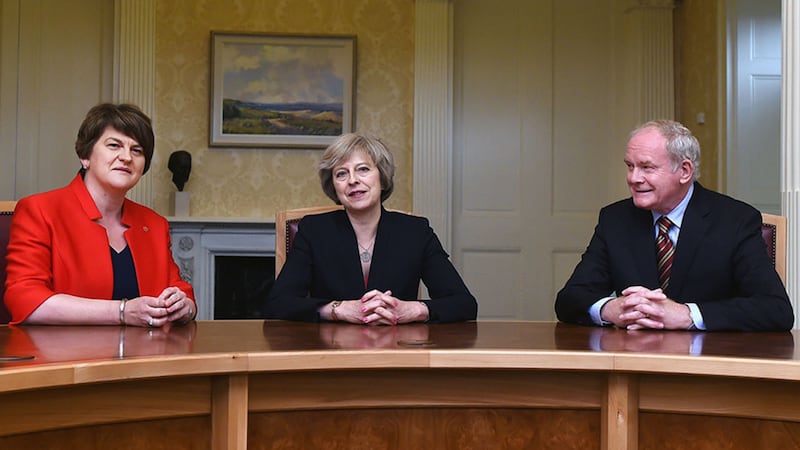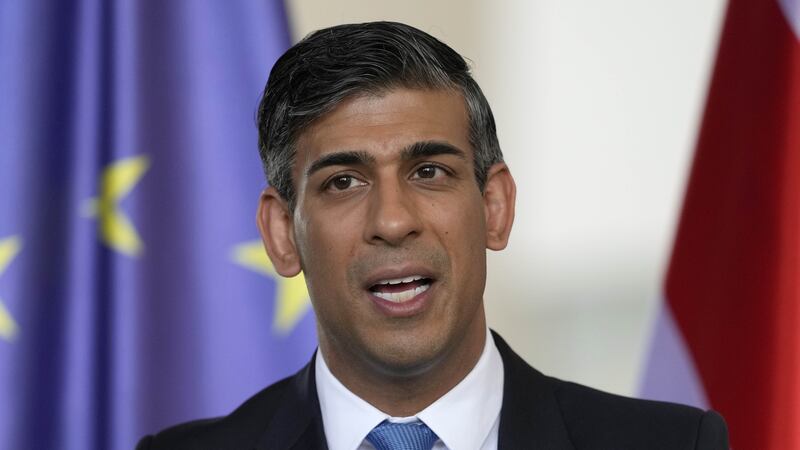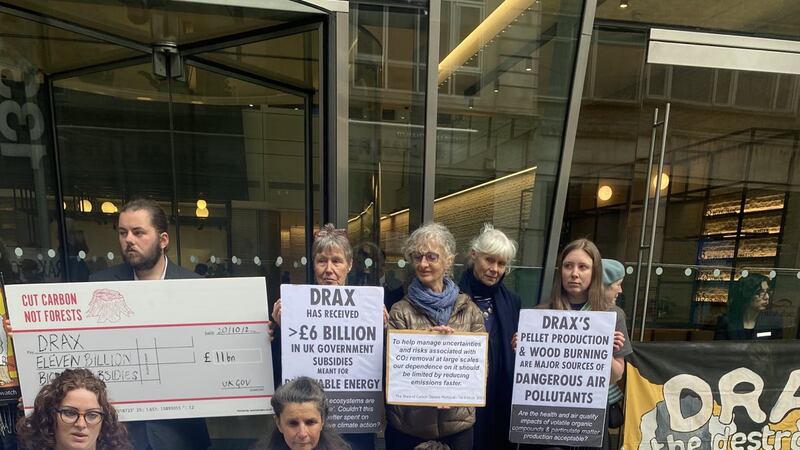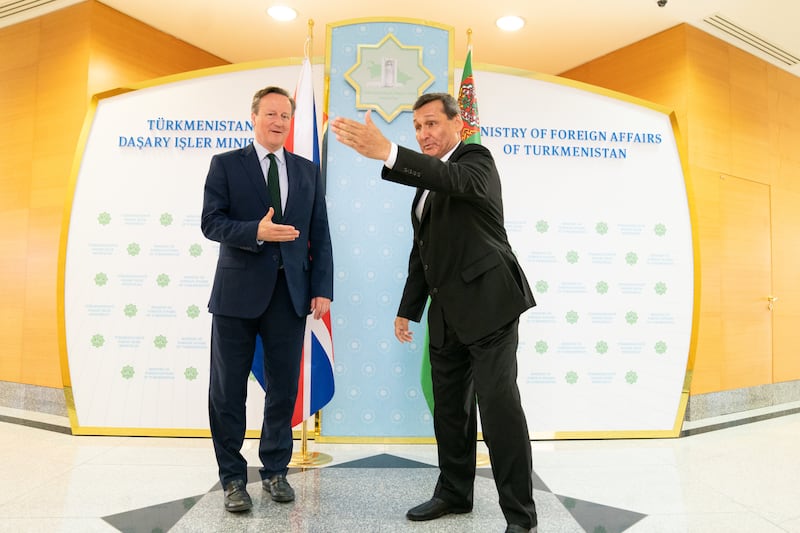The British prime minister has responded to a letter from Stormont's leaders outlining their Brexit concerns, but has not made any new commitments to the powersharing administration.
In separate replies to First Minister Arlene Foster and Deputy First Minister Martin McGuinness, Theresa May insisted the future of the border post-Brexit is an important priority for the entire UK, not just Northern Ireland.
She also pledged to take full account of the region's specific interests in the negotiations with Europe.
But while the letter reiterated the British government's previously stated general positions on Northern Ireland aspects of Brexit, it did not include any detailed pledges around specific concerns raised by DUP leader Mrs Foster and Sinn Fein's Mr McGuinness.
Their letter to Downing Street was sent on August 10, and political rivals at Stormont had made light of the length of time they had been waiting on a reply.
Mrs May's response was dated October 14.
The future of the border has dominated the post-referendum fall-out across Ireland, with politicians north and south insisting the current arrangements that allow for free flow of people and goods must be maintained.
In her reply, Mrs May wrote: "I am committed to full engagement with the Northern Ireland Executive on the UK's exit from the EU and will take full account of the specific interests of the people of Northern Ireland in order to get the best deal possible for all parts of our United Kingdom as we leave the EU."
The Prime Minister continued: "I agree with you that the future of the border with Ireland is of the highest priority for Northern Ireland and indeed is an important priority for the UK as a whole."
In Northern Ireland, 56% backed Remain in June's historic referendum.
Of the five main parties, Sinn Fein, the SDLP, the Ulster Unionists and the Alliance Party all campaigned for Remain - while the DUP backed Brexit.
The original letter, which focused on the potential downside of leaving the EU, saw Mrs Foster accused of U-turning on her pro-Brexit stance - a claim the DUP leader denied.
The letter from Mrs Foster and Mr McGuinness stressed that Brexit could not be allowed to compromise cross-border efforts to tackle organised crime and those opposed to the peace process.
The ministers also said it was critical to the economy that businesses retained their competitiveness and did not incur additional costs.
It highlighted the need to retain access to sources of skilled and unskilled labour in the EU.
The vulnerability of an agri-food sector reliant on EU subsidies was also raised, as were concerns that a proportion of billions of euro of EU funds for projects in Northern Ireland may not be drawn down due to the exit.
Responding, Mrs May repeated the oft-used British government quote of not wanting to see a "return to the borders of the past".
She said she wanted to see continuance of the free movement across the border.
The prime minister said she recognised there were issues around the single all Ireland electricity market and with the supply of gas - and said resolving those would be a priority.
Agri-food sector and structural funding would also be priorities, she said.
Mrs May invited Mrs Foster and Mr McGuinness to the next plenary meeting of the Joint Ministerial Committee at Downing Street on October 24.
She said she hoped the meeting would provide an opportunity to "continue our constructive discussion on this important issue".
Mrs May's letter was released to the public by Mrs Foster and Mr McGuinness's department one day after the Brexit issue was debated at the Stormont Assembly - a chronology that has led some to question why it was not disclosed to the chamber during the debate.
A spokesman for the First Minister and Deputy First Minister insisted there was no undue delay.
"We welcome the commitment by the Prime Minister to full engagement with the Executive in the UK's exit from the EU," he said.
"Ministers had first sight of this letter on Monday and, given the joint nature of the Executive Office, the First Minister and Deputy First Minister met at the earliest possible opportunity on Monday following Assembly Business to discuss the contents. We later discussed the letter with the Secretary of State at 5pm."
He accused others of "playing to the gallery" and said Mrs Foster and Mr McGuinness "would continue to work constructively to represent the needs of all our people".
"Next Monday we will walk through the door of Downing Street with the mandate the electorate gave us to discuss these matters directly with the Prime Minister and representatives from Scotland and Wales," he added.








